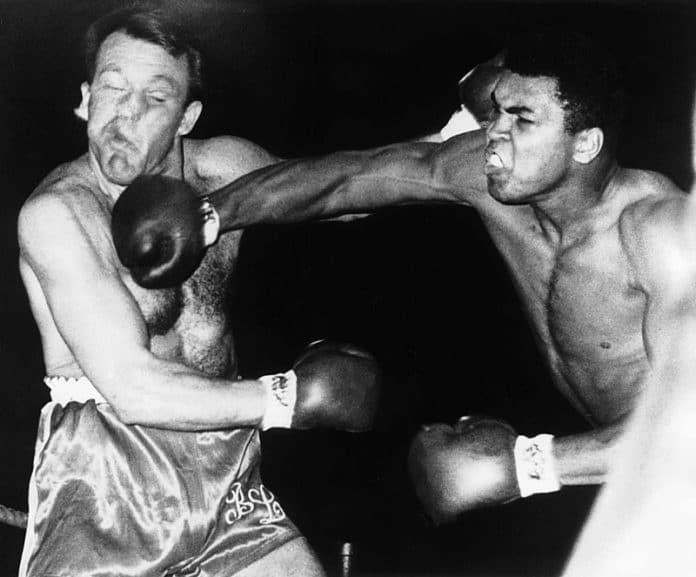Andrew Atkinson speaks to David Pritty, looking back on the career of British heavyweight boxer Brian London, the second anniversary of who’s passing is on 23rd June 2023.
BRIAN London held the British and Commonwealth heavyweight title from 1958 to 1959, twice challenging for the World heavyweight title, losing to Floyd Patterson in 1959 and Muhammad Ali in 1966, both times via knockout.
“Brian was one of a quartet of British boxers, with Henry Cooper, Joe Erskine, and Dick Richardson, who dominated the British boxing scene throughout the 1950s and 1960s,” said David.
London’s nicknames in the ring were ‘The British Bulldog’ and ‘The Blackpool Rock’: “Brian was spurred to take up boxing during his time in the Royal Air Force for national service,” said former RSM David.
He turned professional in 1955, winning his first 12 bouts, one of which was against RAF light heavyweight boxer Brian Wiltshire in 1951.
“Against Henry Cooper in May 1956 – Cooper stopped him with a technical knockout in the first round,” said David, speaking during a visit to La Zenia.
In May 1959 London fought in a World title fight against champion Floyd Patterson, losing the bout in Indianapolis by a knockout. He also lost to Cuban, Nino Valdez later that year, by a technical knockout. In 1960, London bounced back when he beat American Pete Rademacher by a knockout.
“Brian then fought Henry Cooper for the third time in February 1964, when he challenged for his British and Commonwealth titles, as well as the vacant European title. “Cooper won on points, after 15 rounds. His next fight of was in March 1965, against the young ‘Golden Boy’ of British boxing, Billy Walker. London won on points, after 10 rounds,” said David.
Masterful performance by Ali
On 6 August, 1966, London fought for the World Heavyweight Championship for the second time, aged 32, against Muhammad Ali to defend his title at Earl’s Court Exhibition Hall.
“Ali, aged 24, with the advantages of height, weight, reach, speed and youth on his side, put on a masterful performance,” said David.
In an interview with the BBC, London said: “He was just getting through all the time. Ali was big, fast and could punch, whereas I was smaller, fatter and couldn’t punch.
“He stopped me in three rounds and that was it, I don’t think I hit him. It was good money and I got well paid for it. That’s all I fought for.
“Every fight I ever had I always had a go, but with Muhammad Ali I thought ‘don’t get hurt Brian’, and I therefore didn’t try, which was wrong, totally wrong.”
London’s last fight was against Joe Bugner, who would eventually take the British, Commonwealth and European titles from Henry Cooper. The bout was in May 1970, at Wembley, and Bugner won by a technical knockout in the fifth, signalling an end to London’s career.
Blackpool meeting with Moore and Greavsie
“After retiring from boxing, Brian became a businessman in his hometown Blackpool, owning several nightclubs, and was a fitness fanatic, running 12 miles a day,” said David.
In 1971 England 1966 World Cup star Bobby Moore and West Ham teammates, Jimmy Greaves, Clyde Best and Brian Dear, spent the evening at London’s 007 nightclub in Blackpool – the night before an FA Cup match against Blackpool, losing 4-0.
Moore said of the incident: “I’d met Brian London on many occasions and thought it would be nice to look him up. I suppose we all realised at the time that we were leaving ourselves vulnerable”.
London died on 23rd June 2021, aged 87, following a long illness.
“Great memories of meeting Brian, having dined out at an Italian restaurant with the family to celebrate my birthday. A great man, the ‘Blackpool Rock’ “, said David.







